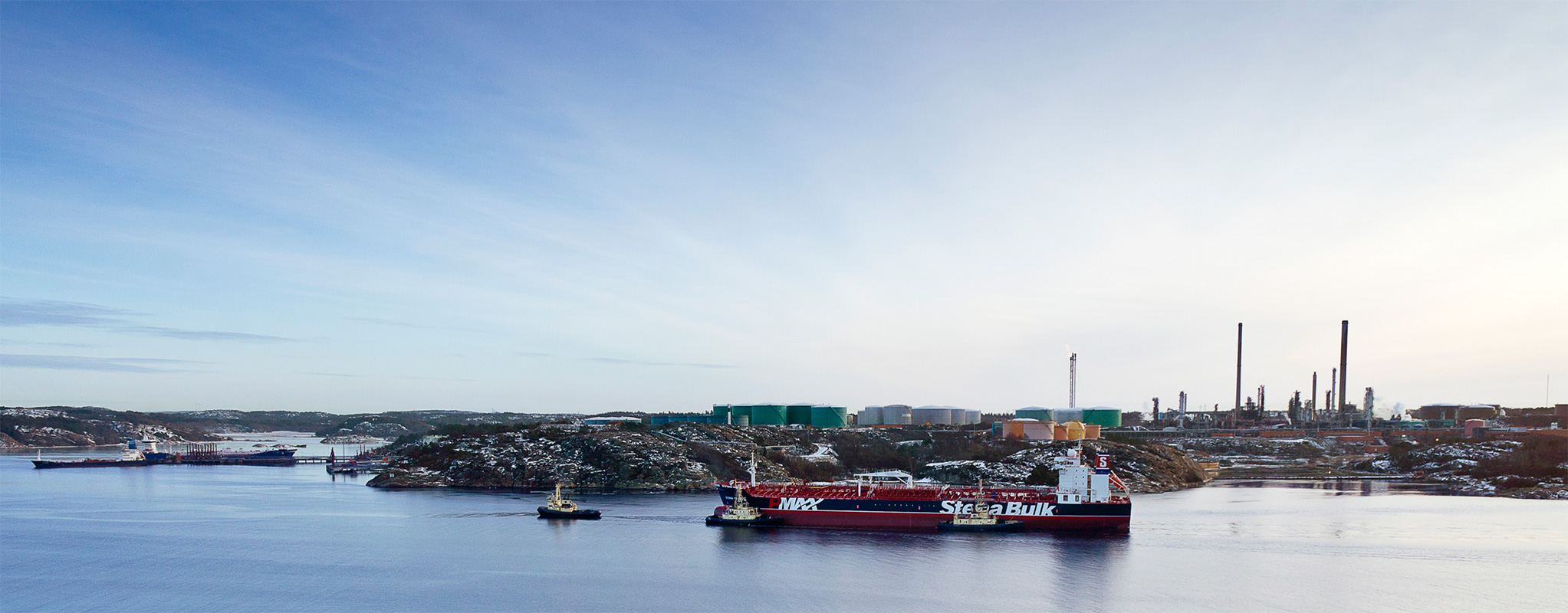Comment on the war in Ukraine
When what is not supposed to happen, happens
It is a dramatic and tragic development in Europe that we are witnessing. The barbaric warfare of the Russian leadership towards Ukraine is causing destruction, refugee flows, death and widespread suffering. It also results in an economic backlash that strikes at its own people. The co-ordinated response of the West redraws the economic and energy policy map right before our eyes. A new curtain of iron seems to be emerging. The consequences are difficult to analyse but will likely last for a long time, or as long as the leadership in Moscow remains unchanged.
How does this affect shipping?
As described in the media, both Ukraine and Russia are large exporters of commodities, affecting both dry bulk and tankers. Today's sanctions do not restrict port calls in Russia or the transport of Russian goods, however, many companies have chosen to refrain from Russian business.
Historically, sanctions and unrest have often strengthened shipping markets. So far, it is difficult to see a clear outcome. The stock market shares in tankers and bulkers have firmed but not the container segment. Rates for larger tankers initially rose but have since declined and the high oil price is squeezing earnings further. Product tankers are doing better than before the crisis. However, there are large differences between geographical areas. The shipowners who choose to still load in Russia can charge additional premiums.
In the long run, it is sanctions that have the largest impact for the tanker market, and also OPEC's willingness to compensate for a possible loss of Russian energy production. This in turn affects demand in tonnes-miles, which has a major impact on earnings.
An unknown variable is how the sanctions against the Russian state-controlled fleet in the Sovcomflot fleet will affect the tanker market. With over 100 vessels in the fleet, Sovcomflot is one of the world's largest tanker companies.
In the longer term, the consequences can be even greater. If, for example, the price of oil and gas continues at current levels, it will probably further drive the transition to more fossil-free energy.
How does the current situation affect Concordia Maritime?
When the war broke out, Concordia Maritime fleet carried no Russian cargo, nor was any ship on charter to a Russian company. Of course, we comply with any sanctions that are in place and since the outbreak of war we have refrained from loading in a Russian ports until further notice. This in collaboration with our customers and many other shipping companies. About 70 of our officers on board Concordia Maritime's ships are from Russia. Due to the existing sanctions, it is challenging to pay salaries to these hard-working sailors. Together with our technical manager, we are trying to find a solution to this.
In the current situation, the above may change at short notice but that is the status as of today.
Erik Lewenhaupt, CEO Concordia Maritime

